FASCIST MUSIC
|
1982's Trans is an incredible artifact. It's mostly anti-fascist, but it's got some obviously fascist elements, so it fits here, and its story is just wild.
If "Neil Young's synth album" isn't enough for you, consider a few things: - It is almost entirely sung through a vocoder. - It is almost completely indecipherable. This was on purpose. Young's son was born with severe cerebral palsy and the fog of synth and vocoder was meant to represent his son's efforts to communicate. - Scattered amidst such deeply inaccessible electronic tracks as "Computer Age," "Computer Cowboy," and "We R in Control," are some light, organic country-blues songs that sound like they were lifted from another album. In fact, they were! That album, per Young, was "a tropical thing all about sailing, ancient civilizations, islands and water." - This was the first album Young recorded for his new label, Geffen. It was such a colossal fuck you, as well as a commercial and critical bomb, that the label sued him for deliberately sabotaging himself by releasing "uncharacteristic" material. This album is fascist in all the obvious ways. Computers dominate the landscape lyrically and musically, to the point that Young himself is a computer. The album art shows a computerized graph-paper hologram man hitchhiking toward a dystopian metropolitan future in some kind of DeLorean, while a shaggy guy heads to the woods in some old hearse. But in deeper, more important ways, it's anti-fascist. Young's son was crying out to be heard, a lone, small voice in a world that had no time for him. That effort was worth something. Young himself mimicked it, and when his strained falsetto occasionally breaks through the vocoder, it is actually stirring. And yes, hologram man is off to town on the cover. But where is the shaggy guy going? Off to foment revolution, probably. There's hope on Trans.
0 Comments
Generic corporate electrohipster band Capital Cities scored a minor hit in 2013 with "Safe and Sound." What do you really know about Capital Cities or "Safe and Sound?" I have an uncanny feeling that the apparent men representing themselves as Capital Cities are holograms, and the song is not so much music as a marketing pitch hatched from a fascist corporate overlord. Rudimentary research indicates that Capital Cities is presented as a duo: one clean-faced guy with a high-and-tight haircut (popular among the youth) and one James Harden-looking guy. Are we to believe that these two ciphers played all the instruments? Where is everybody else? The video provides clues: These two keep blipping and bleeping into different personae, bodies, and even eras of time. It takes tremendous effort to believe that they are not holograms. The song itself is perfectly designed to be in a car commercial or a dystopian loudspeaker. Everything is safe, sound, and taken care of. The lyrics are perfectly generic: "I could be your luck / In a tidal wave of mystery you'll still be standing next to me." Musically, it's genre-free. While catchy, it's sexless, so it doesn't fit as pop. EDM? The Capital Cities boys seem to be pushing dance in their video, but I don't buy it. And it has no pathos, or even emotion, so rock doesn't work. It's sales music. And wouldn't you know it, State Farm used the song in a commercial just this year. If you don't buy my explanation, let me ask you this: Why would human beings make this music? Don't get me wrong, I think the song is great and have probably listened to it 100 times. But it expresses nothing, in the eel-slickest, most amorphous style imaginable. Isn't music supposed to be a form of expression? What motivated High-and-Tight and James Harden to link up in Los Angeles, give themselves an aggressively fascist band name, sign to Capitol Records (really), and release corporate pitch music? There is no reasonable explanation, because that's not what happened. What happened was, a massive global conglomerate with offices in all the capital cities -- let's call it Capital Cities Corp., or CCC -- needed a "safety song" to reassure people when they buy bags o' glass or explosive tinderboxes on wheels. CCC input parameters into its music-simulating application to yield "Safe and Sound." Then, it generated two holograms to serve as the ostensible band, which data dictated should be a basic white guy and a hilarious wild card. "Safe and Sound" was released as a single, not for the sake of the holograms' careers (duh) or even to be promoted into a big hit, but rather for the song to become vaguely familiar prior to being used in commercials a few years later. Now, the commercials are here, and the true purpose of "Safe and Sound" is realized: To sell us plebs on our doom. Robert Palmer was the puppet master of the beautiful, drugged, stylish, vacant mannequins in his video for "Addicted to Love." The song is anonymous 80s meat. The video deliberately exaggerates a misogynistic aesthetic, complementing the droning guitars and drug-pun-rich lyrics. This vacuous fascist fashion is how Robert Palmer is remembered, if at all. Speaking of remembrance, I was struck, upon Palmer's death in 2003, at how anticlimactic it was. I didn't expect his death to cause global mourning as with Frank Sinatra, George Harrison, Jerry Garcia, or even Warren Zevon, but I thought he might merit a bit more than this cursory, loveless obituary. No tears for a craven 80s schlockmeister, I concluded.
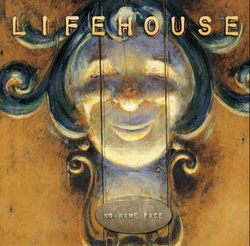 If you want a fascist record, it helps to start with a fascist title. The faceless boys from Lifehouse (where are they from? Do you have any idea? L.A.) could hardly do better than "No Name Face." The music itself is dead-ass rock, otherwise known as "butt rock." Distorted guitars playing lead over a gloomy bed of crunchy acoustic and electric guitars, with a gutteral vocal buried deep in the mix. You know the type: Goo Goo Dolls, Fuel, Creed. The post-grunge rejection of personality. All duly fascist. What makes No Name Face particularly interesting as a fascist artifact is its timing. This album, released in May 2000, bridged the gap between an era in which rock was the dominant form of music (albeit in depleted form, with Matchbox 20, Vertical Horizon, and Creed leading the way) to an era in which rock was unquestionably dead. No Name Face and its single "Hanging by a Moment" owned 2001, with "Hanging by a Moment" Billboard's top single of the year. When No Name Face exited the charts in September 2001, the world was different. J.Lo, Alicia Keys, and Destiny's Child ruled music. R & B would eventually pass the torch, but never again to rock. Exactly one band had a #1 Billboard Hot 100 hit after Lifehouse, and that was Nickelback. Lifehouse presided over rock's funeral. "Rocket 88" to "Hanging by a Moment," 1951 to 2001, R.I.P. Did Lifehouse kill rock? Probably. "Hanging by a Moment" was ubiquitous in 2001, and not in the good way. Some of the pop sheen that Third Eye Blind and Matchbox 20 had introduced into rock in the late 1990s had by then become rote formula, and Lifehouse bludgeoned that formula to death. Quiet verses, big chorus, universal lyrics, strings, and even a beat drop. And a sad Vedder vocal ripoff to boot. As "Hanging by a Moment" got its millionth spin on FM radio, the world woke up from its 50-year love affair with rock and said, "This just isn't working." Nickelback was the spasm that the world curb-stomped to make sure rock never came back, but Lifehouse was the death star that did it in. The greatest musical invention of all time, the language of freedom, the symbol of rebellion, the vehicle for Dylan's poetry, the actual vehicle for Springsteen, a genre so big to include Chuck Berry, Led Zeppelin, U2, and Bowie... killed by Lifehouse. I don't care if they're nice lads; they'll always be assholes for what they did to rock. You can't get more fascist than killing the people's music. David Bowie's death in January triggered many deserved tributes. He was the greatest rock star ever.
But during the 1990s (technically 1987 to 2003), he released an amazingly long and unbroken string of terrible fascist albums. It would take a perverse revisionist* -- and there were plenty in the weeks after his death -- to deny how far he fell during these years. The Cliff's Notes Bowie is this: He came on the scene in the late 1960s as a psychedelic folkie, then hit his creative stride in the early 1970s as the glam Ziggy Stardust. He soon turned to "plastic soul," the Thin White Duke persona, and mountains of cocaine. Clean by 1977, he headed to Berlin to release a trio of artsy, acclaimed albums. Then he wanted to get popular again and released a big, ominous, arena-rock album (Scary Monsters... and Super Freaks) and two popular dance-rock albums (Let's Dance and Tonight). After these commercial successes, Bowie was at a crossroads. He chose fascism.
After so many embarrassments, it was time for Bowie to finally give up, which he did. But in a happy coda, 10 years later, he released two pretty good albums, 2013's The Next Day and 2016's Blackstar. His output from 1969 to 1983 had already ensured his legacy, but these two showed he was at least capable of humor, drama, and striving -- antidotes to fascism all -- and willing to share his gifts in his waning years. *One revisionist, Jason Hartley, came up with the Advanced Genius Theory to address work exactly like Bowie's 1990s output. Per Hartley's theory, since Bowie is an acknowledged genius, it's natural that the genius present in his work would eventually exceed his audience's ability to appreciate it. The "problem," then, lies with us, not Bowie. Best known for skating rink favorite "Cotton Eye Joe," Rednex is a Swedish dance-bluegrass collective with a deeply weird American-themed aesthetic. Annika Ljungberg, Kent Olander, Arne Arstrand, Jonas Nillson, and Patrick Edenberg became Mary Joe, Bobby Sue, Ken Tacky, Billy Ray, and Mup back in 1994. They continue to trot out a surprising number of hits today in an incredibly confusing rotating troupe format, complete with several spinoffs and tributes that they formed themselves. Per Wikipedia: "On live performances and interviews, the members usually act crazy with a rough and bad behavior."
Of course, they put an obliviously Swedish spin on all their down-home cultural appropriation, starting with the fact that they pair banjos and fiddles with '90s Eurotrash dance grooves. The name, too, can only be so on-the-nose because it's coming from such a far-away place. It's the same reason there's a British band called "Texas" and a French Tex-Mex restaurant chain called "Indiana." Such a band would make no sense in Texas, and such a restaurant would make no sense in Indiana (or, frankly, anywhere). But from afar, such concepts seem exotic and worth cultural note. Cultural appropriation is generally fascist, particularly when it's tinged with cruelty toward a disadvantaged group. Really, the Rednex act is not much different from blackface. Both present cartoonish characteristics of a downtrodden minority for sport. Admittedly, Rednex targets a cultural minority group that merely has had a rough go (poor white Southerners), rather than a racial one that was systematically enslaved and oppressed for centuries (blacks). It's less offensive to parody rednecks than blacks, but it's cut from the same cloth. This is not to say Rednex was not conceived with genuine admiration as a loving tribute to Americana; it probably was. From Sweden, it might still look that way. But from America, it's a derogatory caricature of a group that has long suffered abuse, neglect, and disdain. Picking on the weak is irrevocably fascist.
Ah, the ludicrous stylings of Toto. As a preliminary matter, it's worth noting that the band itself is supremely fascist in concept and execution. With Toto (Latin for "total"), we have a collection of faceless Los Angeles-based "ace session musicians" who decided, amid the most fascist era in rock history (the late 1970s, which was so overwhelmingly oppressive that it gave rise to punk) to max out the corporate card. Toto's music is so self-evidently fascist that there's not much novel insight to share. The album art merits comment, however. First thing you notice: They like swords. On their eponymous 1977 album, the sword is exalted in space, framed by some kind of medieval family crest, and shrouded in purple steam. This album cover so completely hews to fascist principles that it seems to anticipate the existence of FASCISTMUSIC.com. (Side note: What was the space fascination in so many late-70s albums? No wonder two generations thought corporate rock was for losers. Millennials, of course, don't collect albums, so they can enjoy Journey's and Boston's tasty jams without the disqualifying images.)
The sword theme continues on their most popular album (the one with "Africa"), IV, and so does the enwreathment theme, with golden rings surrounding the sword against a blood-red background. If there's one thing a fascist likes as much as violence and oppression, it's golden rings. We feel the impulse to genuflect before this album cover. Don't you worry: There are swords on most of Toto's remaining albums, including its greatest hits packages. But I wanted to show some other sides to Toto. The "Africa" single initially seems like a refreshing blast of liberty, and in some ways it is. Look, it's the guys! Yes, it's nice to see some faces. But there are six of them, not a great sign (in toto, 45 souls have cycled through this "band"), and who knows who any of them are, and they look like Scarface extras. Still, that's the look of the era, so let's be generous. And look, Africa! They care, right? Well, let me stop you there. They blessed the rains down in Africa. Gods of a primitive continent, right? Is there another interpretation? And look at that "Africa" font, stamped like a C.A.R.E. package. We need to move on. Finally, we have Toto's sad 1999 effort -- aren't they all? -- Mindfields. This Matrix agent is peering into your mind, of course, and the world is warped, and all he sees in your mind are fields. There's some Asian writing for some reason. All this is disturbing, albeit in a stupid way. Toto is again trying to intimidate us with their fascism, and the fact that they fail does not detract from the darkness of their attempt. 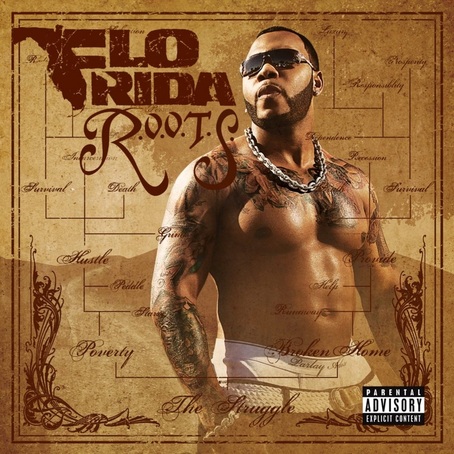 Certainly, this record label's overproduced, sweet-and-salty blend of pop and rap, ostensibly fronted by a largely anonymous man called "Flo Rida," is unit-moving Big Music of fascist character. But what really fascinated me was the album title: "R.O.O.T.S.: Route of Overcoming the Struggle." Generally, and especially if you want to harken back to Alex Haley's book and "We Shall Overcome" (i.e., black Americans' struggle for civil rights), struggles are efforts toward some goal. But here, mind-bogglingly, the struggle is the thing to be overcome! It could have been "Route of Overcoming Through Struggle," which would have made more sense as a civil rights-y title. But I think Flo Rida's handlers made a conscious choice to suggest that Flo Rida was not interested in overcoming hardship through struggle; rather, their front man wanted to avoid struggle altogether. Once you have overcome struggle, what's left? Endless dancing, champagne, big DMC chains, and tighty-whiteys on blast. To advocate this vacuousness in lieu of a meaningful life, and to twist civil rights language to push this poison, is fascist. Keep the masses brainless and entertained. Flo Rida is a master of it. A counterargument might be that "The Struggle" is defined in the bizarre family tree on the album cover, and as thus defined, the term is indeed something to be overcome. But ordinary definitions matter, and when they match the civil rights references slathered all over, it's more of a "struggle" to ignore them in favor of the nonsensical diagram superimposed upon Flo Rida's gleaming torso that says the three paths from "Provide" are "Death," "Recession," and "Survival." The gold standard. The system crushes the individual.
Mindless repetition of shapes, icons, and slogans. From the claustrophobia-inducing center -- where "JAZZ," in pink, the stand-in for humanity, is evidently trying to escape -- one encounters choking circles, one after another. If you are somehow able to escape the inner rings, you soon confront another, different set of rings. There is no end, no escape, as the rings gradually become infinitesimally close together. The album's title is cruelly ironic. Jazz is the freest, most organic 20th-century musical form. Its language is abstract and improvisational; its images are colorful. With its computer-generated black and white circles, this is the furthest thing from jazz. |
What is fascist music?In Dave Marsh's 1979 review of Queen's Jazz, he wrote, "Indeed, Queen may be the first truly fascist rock band." No other word so neatly expresses supremacy of the powerful and devaluation of the individual. Archives
August 2022
Categories
All
|
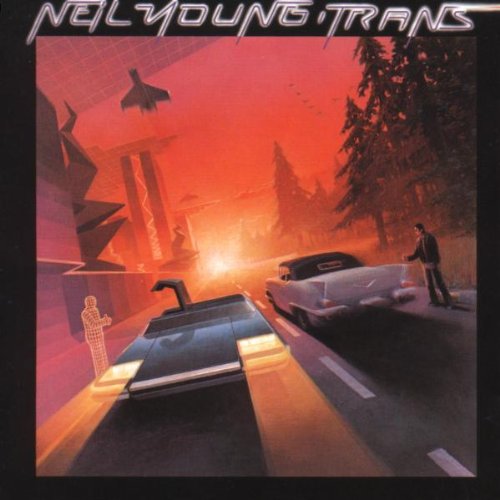
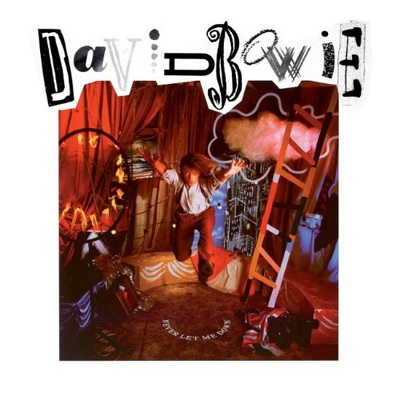
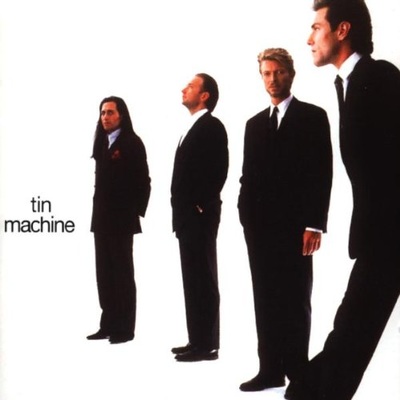
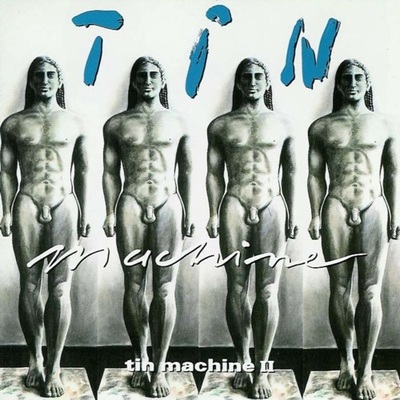
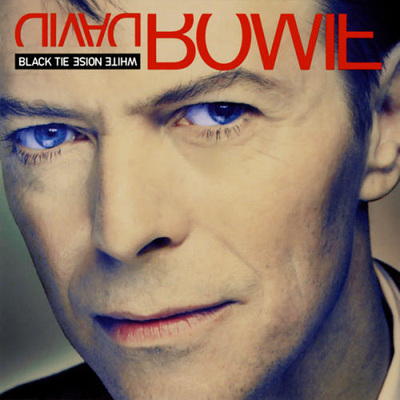
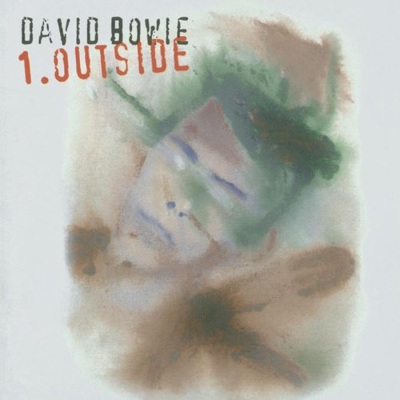
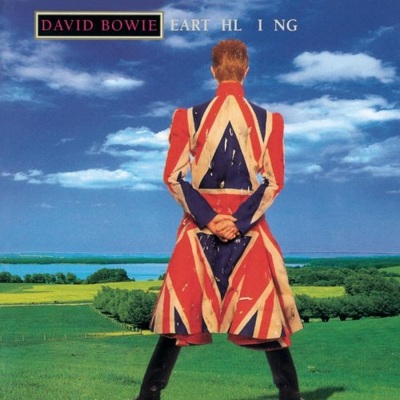
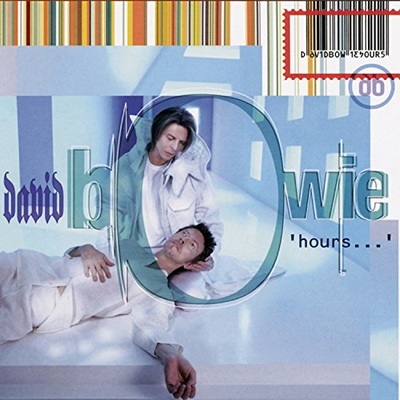
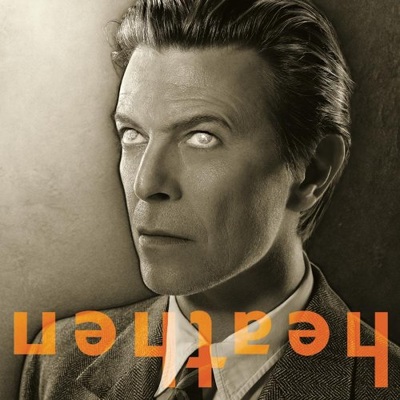
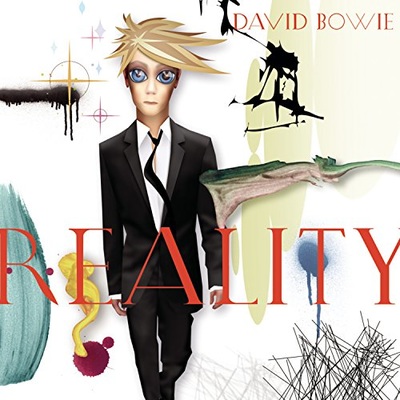
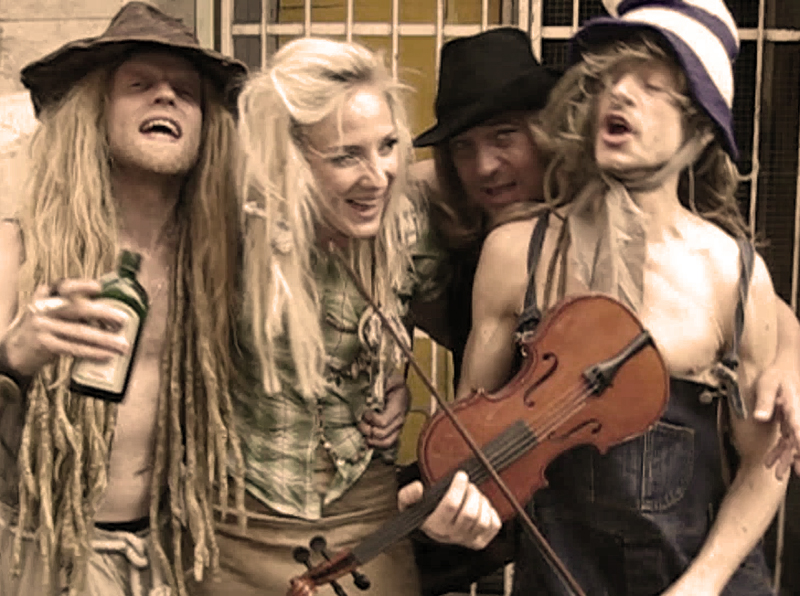
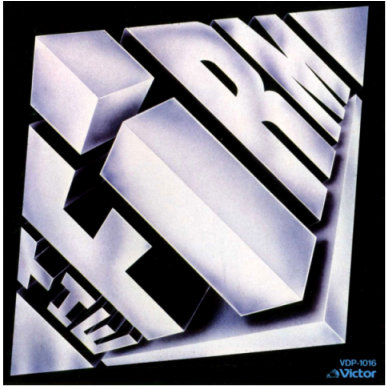
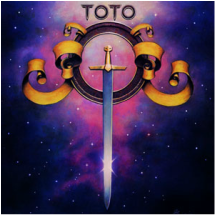
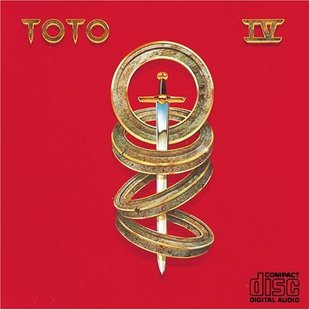
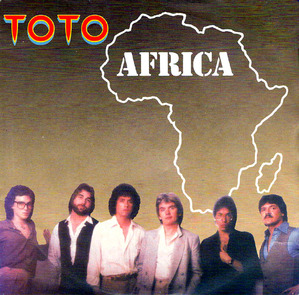

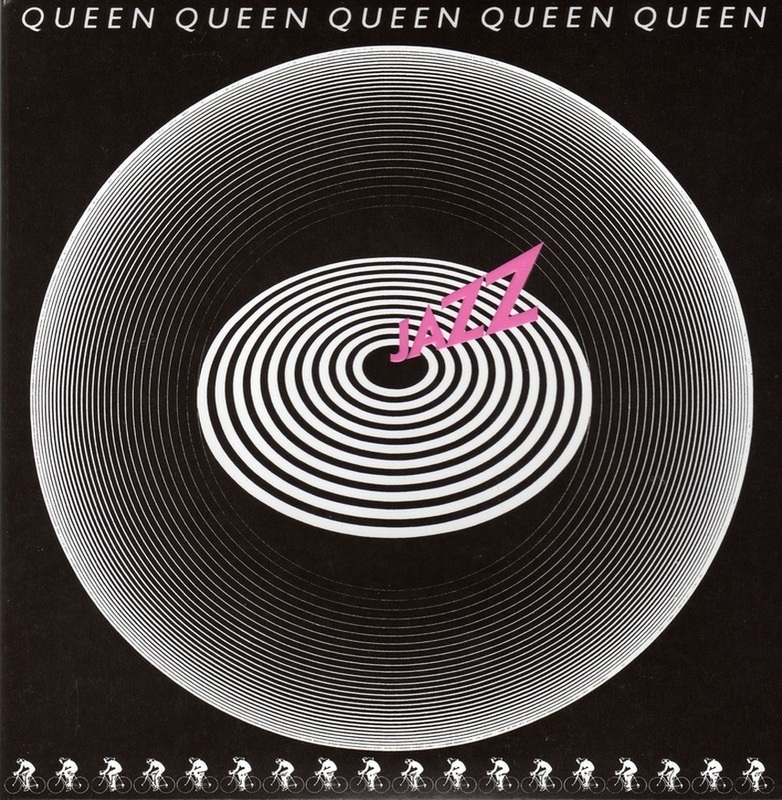
 RSS Feed
RSS Feed
